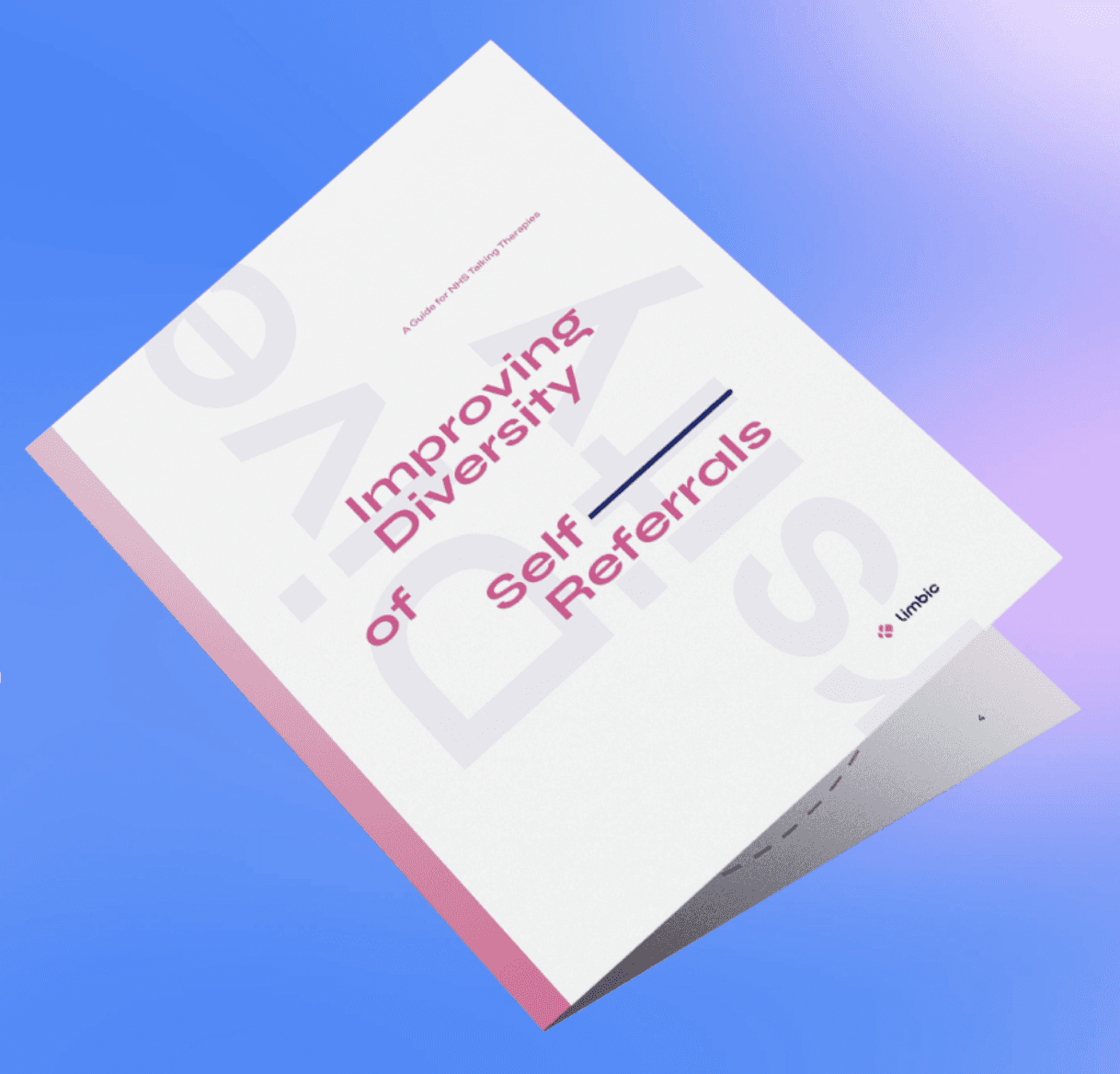

Providing clinically relevant information ahead of an assessment is critical
Background
Mental health service providers often struggle with increasing demand for their services without a corresponding increase in funding or staffing. To overcome this supply-demand imbalance, providers need to increase efficiencies to cope with the demand. In this study, we test whether artificial intelligence (AI) enabled solutions could enable mental health practitioners to use their time more efficiently, and thus reduce strain on the service and improve patient outcomes.
Methods
The study focused on the use of Limbic Access in the referral and assessment process for the UK's NHS Talking Therapies services. Data was collected from 9 services across England from 64,862 patients. We compared referrals that came through Limbic Access to other types of referrals, such as phone calls and web forms, to see if Limbic Access improved clinical efficiency.
Results
The study found that the use of Limbic Access improves clinical efficiency by reducing the time clinicians spend on mental health assessments. Patients who were referred through Limbic Access were seen more quickly and were less likely to drop out of treatment than those who were referred through other methods. In addition, patients using Limbic Access had improved allocation to accurate treatment pathways and, most importantly, improved recovery rates. When investigating the mechanism by which Limbic Access achieved these improvements, we find that providing clinically relevant information ahead of a clinical assessment was critical for these observed effects.
Reduction in assessment time
12.7 min
Reduction in wait time
5 day
Fewer changes in treatment allocation
45%
Reduction in drop out rates
18%
Conclusions
The results of the study have important implications for mental health service providers looking to improve their services and meet the growing demand for mental health care. By using AI-enabled tools like Limbic Access, providers can work more efficiently and provide better care to their patients.
PRODUCTS FOR SERVICES

Guide
Improving Diversity of Self-Referrals
This free guide has practical tips on how services like yours can connect with and engage their communities.

Limbic Access
Limbic Access becomes first in world to gain Class IIa UKCA medical device status
Our landmark achievement guranteeing the safety of our products.

Case Study
Greater Manchester Resilience Hub: Supporting Staff with AI Technology
Supporting our colleagues so they can support our communities.






